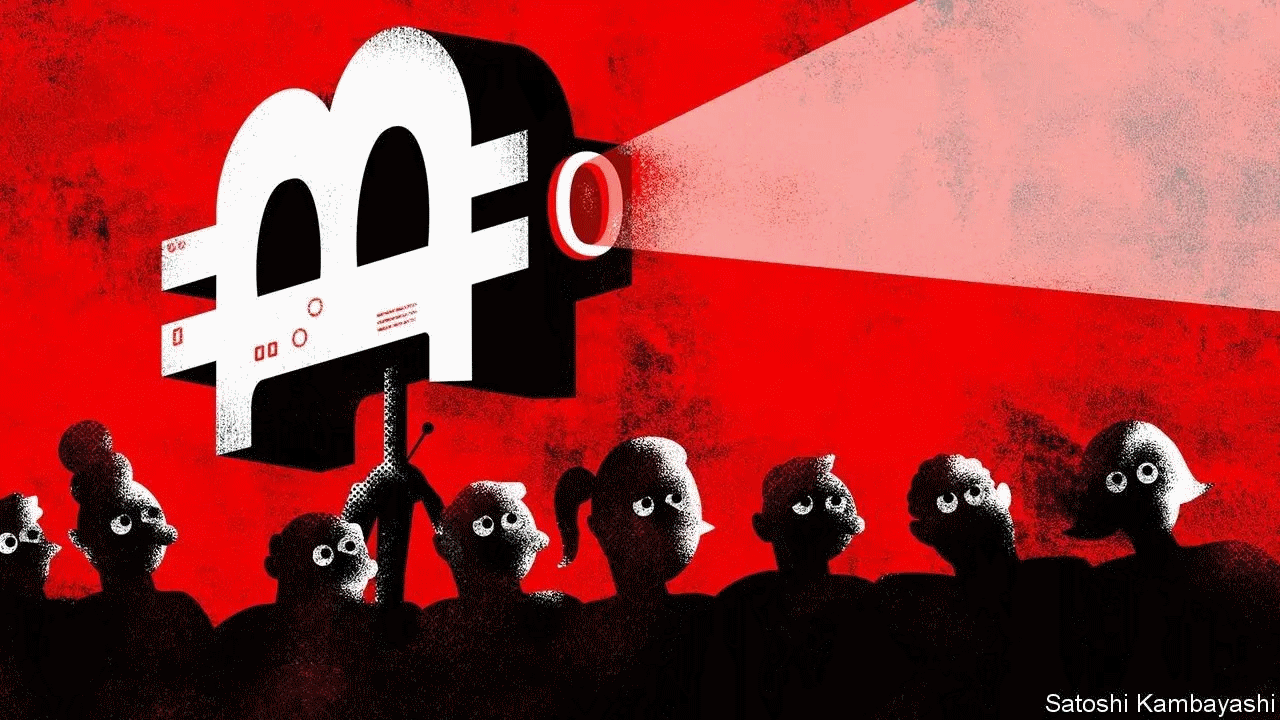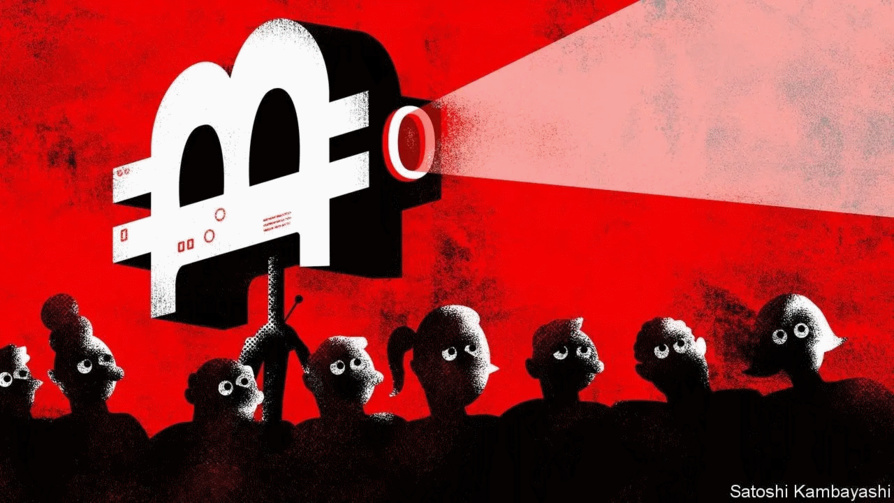IMAGE SOURCE
The growth of the crypto ecosystem is awe-inspiring. Only a year ago, there were around 6,000 currencies on CoinMarketCap. Today, the combined value of the 11,000 cryptocurrencies has climbed over $2.34 trillion, as bitcoin climbed over $51,000 on Friday, reaching its highest level since the middle of May. More than 200 million wallets hold all these cryptocurrencies, six times the number of wallets in 2018. People are drawn to the crypto economy not because they want to hide money from the authorities, but because cryptocurrencies have deflationary dynamics and more importantly because they want to be in charge of their own financial future, without intermediates. So far this year has been a breakthrough year, with signs of bitcoin adoption everywhere, not just among retail and institutional investors. Whether it is Morgan Stanley scooping up more shares of the Grayscale Bitcoin Trust, Amazon hiring a blockchain and digital currency expert, or PayPal expanding its crypto footprint to the U.K., it is clear that bitcoin and crypto are closer to becoming a household name. But what would happen if crypto crashed?
Eye-popping returns are making it difficult even for doubters and naysayers not to think about putting money into crypto. But, the cryptocurrency market is characterized by volatility swings and while the market has matured, downward spirals always raise the question of the consequences if it crashes.
In 2018, the price of bitcoin lost 80 percent of its value, reaching a low of around $3,100 by December of that year. In 2021, bitcoin reached an all-time high of $64,000 in May, dropping to $29,000 in July and bouncing back to $51,000 this September.
Most of the time, it doesn’t take much to trigger a downturn.
In May, Elon Musk’s announcement that Tesla would no longer accept bitcoin as a form of payment set things in motion. Then China began cracking down on cryptocurrency mining, resulting in crypto prices plummeting even more. The IRS then revealed that it was getting more stringent about collecting taxes on cryptocurrencies, which added fuel to the fire. Now the US Congress is proposing to pay for the $1 trillion infrastructure bill, by imposing tax-reporting requirements for cryptocurrency.
Despite price volatility, bitcoin was the best performing financial asset over the last twelve months. What if bitcoin and crypto were to crash? What could cause it?
Regulation
Regulators around the world have been focusing their efforts on crypto. In recent weeks there have been many reports that US lawmakers are pushing for cryptocurrency regulation and the classification of cryptocurrencies as securities. Despite the fact that all this sounds negative and may be devastating for some projects, it is highly unlikely that the US will completely ban crypto. The bulk of the crypto market will remain unaffected and regulating Bitcoin will be hard, if not impossible.
Energy
For the Bitcoin network to function, it needs miners to solve complex math problems, which require mining rig setups that consume enormous amounts of energy. It’s estimated that the bitcoin network consumes more energy than some large countries. Yet, arguments that bitcoin emits tons of CO2 and degrades the environment are inaccurate. There are many facts to counter these arguments, with the primary one being the increasing use of renewable energy within the network. Bitcoin go could even further and become a strong force that will make the electrical grid greener by providing a dependable financial incentive that will help make renewable power sources like solar and wind more economical.
Payments
With the rapid rise in popularity of bitcoin over these past few years, you would expect to see many companies accepting bitcoin as a payment method. While we are not there yet, and Amazon the largest e-commerce marketplace in the world has denied rumors that it may venture into the bitcoin payment landscape, the company’s recent job posting for a digital currency and blockchain expert signals a wider trend. Merchants like PayPal and Visa have announced the acceptance of payments in bitcoin, making the cryptocurrency a mainstream payment method, despite its volatility.
We are still in the very early innings
In terms of adoption, bitcoin has roughly the same users as the Internet had in 1997. This sounds early, but there are many great things underway to scale and improve the network: Taproot, Schnorr adoption, El Salvador’s bitcoinization, Lightning Network, and growing adoption in developing countries.
Bitcoin has gotten stronger with each passing day, and the stakes have never been greater as it rises against collapsing fiat money. Bitcoin is worth billions of dollars, while the entire market value is in the trillions. With the rate of adoption constantly growing, these figures are only going to skyrocket.
Already after a few large crashes, cryptocurrencies have a track record of resilience, making it difficult to imagine a scenario that would cause them to end suddenly. Failure now comes at a huge cost, both in terms of the opportunity cost and in terms of the actual cost with so much money poured into the market. This is no longer about a group of early adopters sending magic money to each other. This is about investment funds, livelihoods, global transactions, personal wealth protection, and freedom.
I don’t like to make price predictions, but If I had to make a long-run prediction, fiat price will not matter, because fiat will fail and bitcoin will take over. Bitcoin is never going away.
The growth of the crypto ecosystem is awe-inspiring. Only a year ago, there were around 6,000 currencies on CoinMarketCap. Today, the combined value of the 11,000 cryptocurrencies has climbed over $2.34 trillion, as bitcoin climbed over $51,000 on Friday, reaching its highest level since the middle of May. More than 200 million wallets hold all these cryptocurrencies, six times the number of wallets in 2018. People are drawn to the crypto economy not because they want to hide money from the authorities, but because cryptocurrencies have deflationary dynamics and more importantly because they want to be in charge of their own financial future, without intermediates. So far this year has been a breakthrough year, with signs of bitcoin adoption everywhere, not just among retail and institutional investors. Whether it is Morgan Stanley scooping up more shares of the Grayscale Bitcoin Trust, Amazon hiring a blockchain and digital currency expert, or PayPal expanding its crypto footprint to the U.K., it is clear that bitcoin and crypto are closer to becoming a household name. But what would happen if crypto crashed?
Eye-popping returns are making it difficult even for doubters and naysayers not to think about putting money into crypto. But, the cryptocurrency market is characterized by volatility swings and while the market has matured, downward spirals always raise the question of the consequences if it crashes.
In 2018, the price of bitcoin lost 80 percent of its value, reaching a low of around $3,100 by December of that year. In 2021, bitcoin reached an all-time high of $64,000 in May, dropping to $29,000 in July and bouncing back to $51,000 this September.
Most of the time, it doesn’t take much to trigger a downturn.
In May, Elon Musk’s announcement that Tesla would no longer accept bitcoin as a form of payment set things in motion. Then China began cracking down on cryptocurrency mining, resulting in crypto prices plummeting even more. The IRS then revealed that it was getting more stringent about collecting taxes on cryptocurrencies, which added fuel to the fire. Now the US Congress is proposing to pay for the $1 trillion infrastructure bill, by imposing tax-reporting requirements for cryptocurrency.
Despite price volatility, bitcoin was the best performing financial asset over the last twelve months. What if bitcoin and crypto were to crash? What could cause it?
Regulation
Regulators around the world have been focusing their efforts on crypto. In recent weeks there have been many reports that US lawmakers are pushing for cryptocurrency regulation and the classification of cryptocurrencies as securities. Despite the fact that all this sounds negative and may be devastating for some projects, it is highly unlikely that the US will completely ban crypto. The bulk of the crypto market will remain unaffected and regulating Bitcoin will be hard, if not impossible.
Energy
For the Bitcoin network to function, it needs miners to solve complex math problems, which require mining rig setups that consume enormous amounts of energy. It’s estimated that the bitcoin network consumes more energy than some large countries. Yet, arguments that bitcoin emits tons of CO2 and degrades the environment are inaccurate. There are many facts to counter these arguments, with the primary one being the increasing use of renewable energy within the network. Bitcoin go could even further and become a strong force that will make the electrical grid greener by providing a dependable financial incentive that will help make renewable power sources like solar and wind more economical.
Payments
With the rapid rise in popularity of bitcoin over these past few years, you would expect to see many companies accepting bitcoin as a payment method. While we are not there yet, and Amazon the largest e-commerce marketplace in the world has denied rumors that it may venture into the bitcoin payment landscape, the company’s recent job posting for a digital currency and blockchain expert signals a wider trend. Merchants like PayPal and Visa have announced the acceptance of payments in bitcoin, making the cryptocurrency a mainstream payment method, despite its volatility.
We are still in the very early innings
In terms of adoption, bitcoin has roughly the same users as the Internet had in 1997. This sounds early, but there are many great things underway to scale and improve the network: Taproot, Schnorr adoption, El Salvador’s bitcoinization, Lightning Network, and growing adoption in developing countries.
Bitcoin has gotten stronger with each passing day, and the stakes have never been greater as it rises against collapsing fiat money. Bitcoin is worth billions of dollars, while the entire market value is in the trillions. With the rate of adoption constantly growing, these figures are only going to skyrocket.
Already after a few large crashes, cryptocurrencies have a track record of resilience, making it difficult to imagine a scenario that would cause them to end suddenly. Failure now comes at a huge cost, both in terms of the opportunity cost and in terms of the actual cost with so much money poured into the market. This is no longer about a group of early adopters sending magic money to each other. This is about investment funds, livelihoods, global transactions, personal wealth protection, and freedom.
I don’t like to make price predictions, but If I had to make a long-run prediction, fiat price will not matter, because fiat will fail and bitcoin will take over. Bitcoin is never going away.

Ilias Louis Hatzis
Ilias Louis Hatzis is the Founder & CEO at Mercato Blockchain Corporation AG.
Ilias Louis Hatzis is the founder and CEO at Kryptonio wallet. Create your wallet in less than a minute, without seed phrases, private keys, passwords or documents. Keep your bitcoin and digital assets always secure and recoverable: https://kryptonio.com
I have no positions or commercial relationships with the companies or people mentioned. I am not receiving compensation for this post.
Ilias Louis Hatzis is the founder and CEO at Kryptonio wallet. Create your wallet in less than a minute, without seed phrases, private keys, passwords or documents. Keep your bitcoin and digital assets always secure and recoverable: https://kryptonio.com
I have no positions or commercial relationships with the companies or people mentioned. I am not receiving compensation for this post.
Autres articles
-
La startup française, Multis s'abrite désormais au sein de l'entreprise suisse, Safe,
-
Lazard x Elaia : c'est signé !
-
Pixpay, les ados et Shein : quand la fintech se penche sur la conscience écolo des ados
-
Nomination | Société Générale annonce l'arrivée d'Antoine Jacquemin au poste de Responsable Mondial de la vente Taux, Change et Placement aux entreprises au sein des Activités de Marché
-
Graduate - Private Equity - September 2024 - Switzerland, Geneva

















